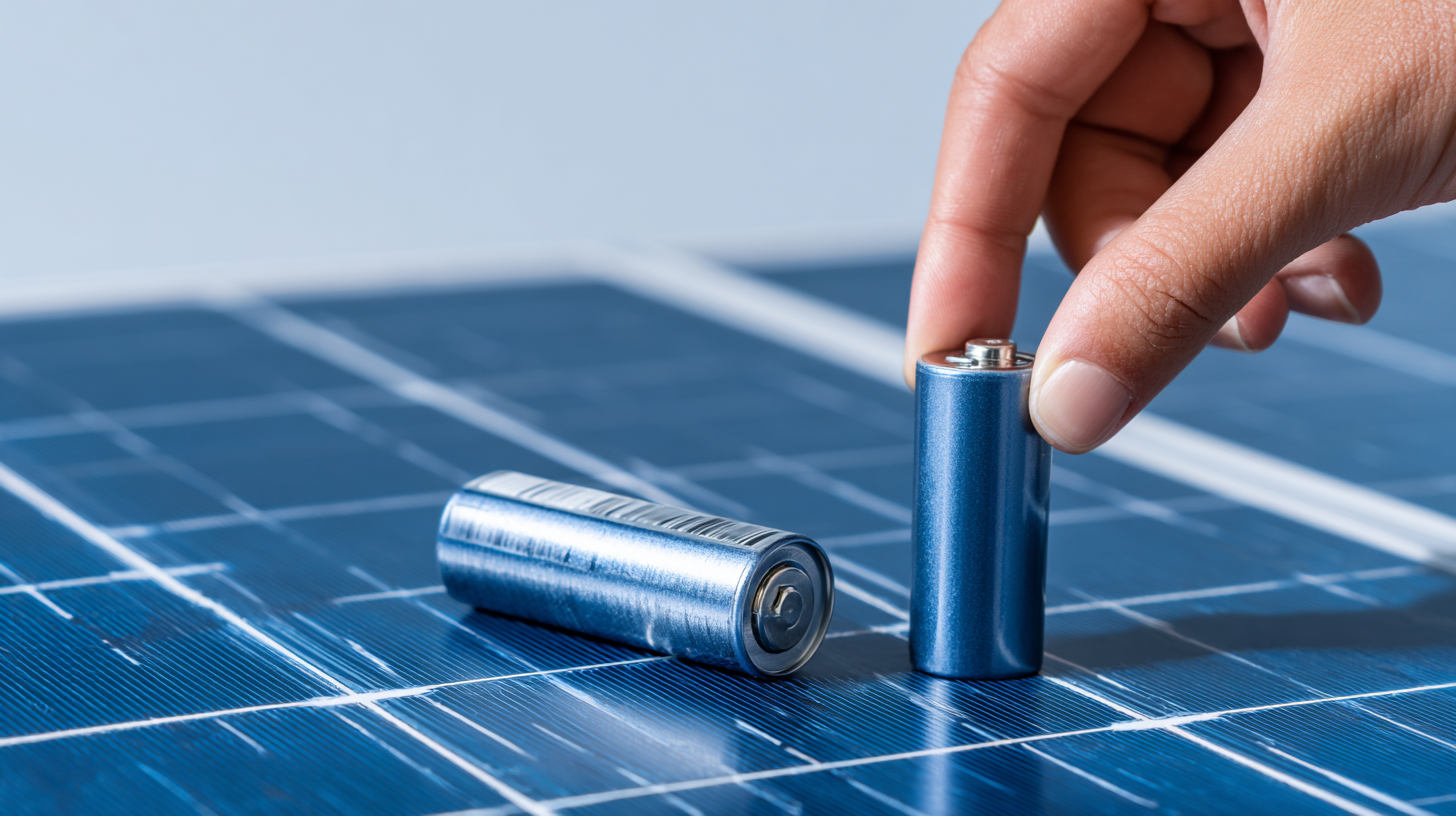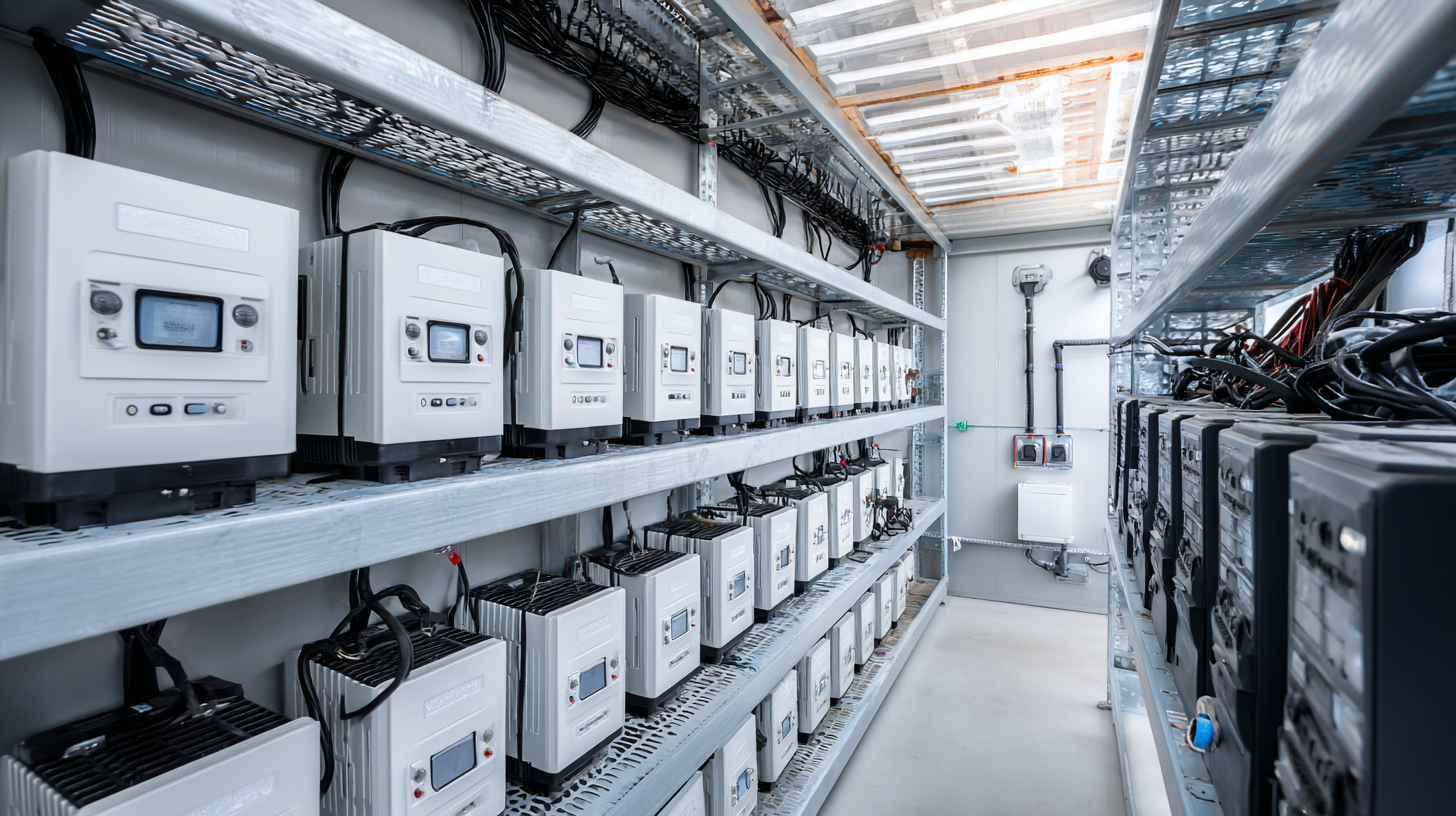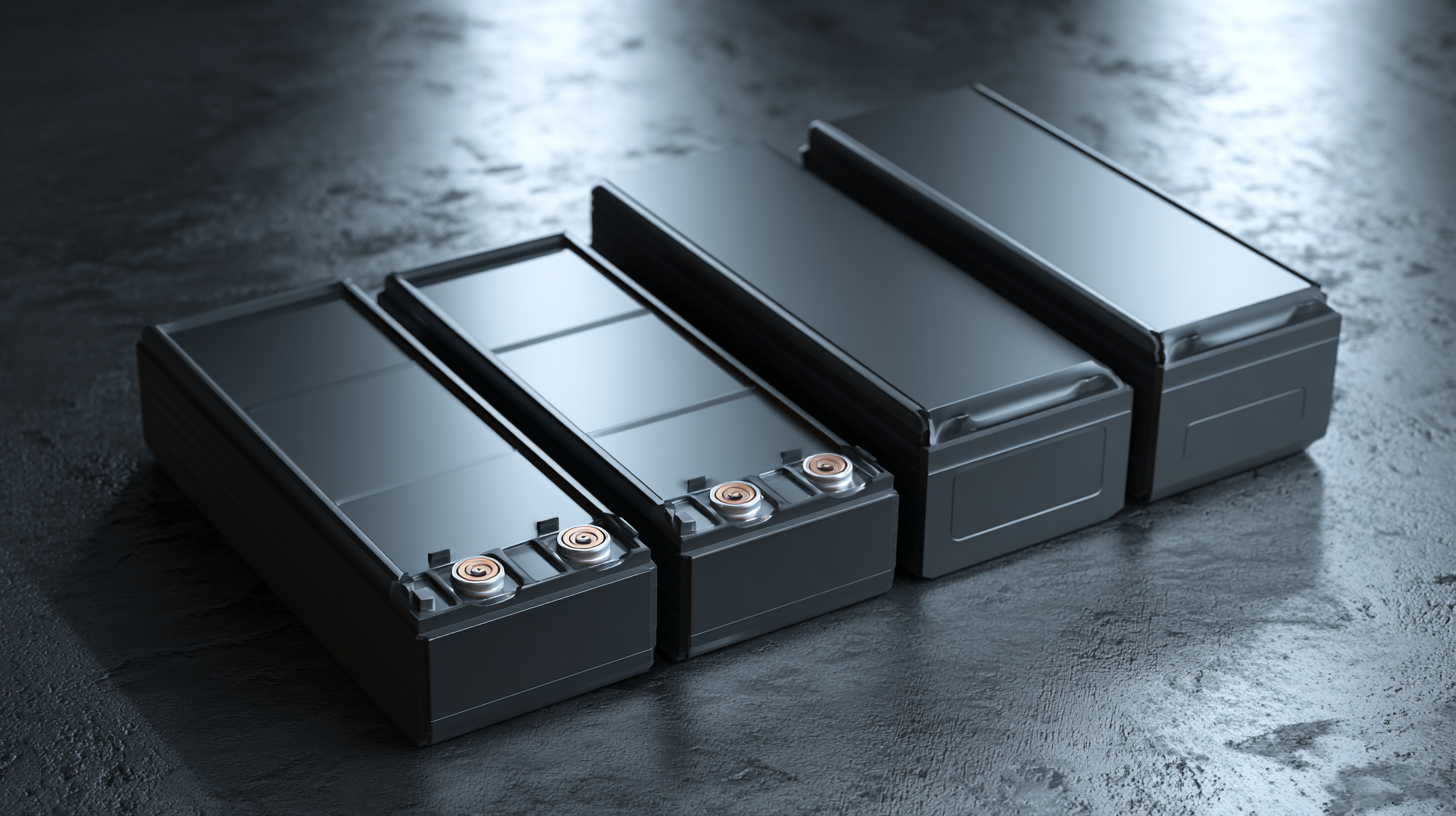As the demand for sustainable energy solutions grows, homeowners are increasingly turning to solar energy systems to reduce their carbon footprint and electricity costs. According to a report by the International Energy Agency, the global solar capacity is expected to exceed 2,800 gigawatts by 2025, with residential solar installations playing a significant role in this expansion. A pivotal component of these systems is the solar battery for house applications, allowing homeowners to store excess energy generated during the day for use at night or during peak demand times. With advancements in battery technology increasing efficiency and longevity, selecting the right solar battery is crucial for optimizing energy usage and ensuring a reliable power supply. This ultimate guide will navigate the key factors to consider in choosing the best solar battery for your home needs, empowering you to make informed decisions in an ever-evolving industry.

When comparing solar batteries for home use, several key factors should be taken into account to ensure you make the best choice for your energy needs. Firstly, evaluate the capacity of the battery, which is typically measured in kilowatt-hours (kWh). According to a report by BloombergNEF, the average household in the U.S. consumes about 30 kWh per day, which means you'll need enough storage capacity to meet your peak usage times.

Another critical factor is the battery's round-trip efficiency. This metric indicates how much energy can be retrieved from the battery after charging. Most lithium-ion batteries have an efficiency rate of around 90%, while some lead-acid options may only reach 70%. Opting for a battery with higher efficiency can significantly reduce energy loss and enhance overall performance.
Tips: Consider your specific energy patterns and choose a battery that supports both daily and seasonal storage needs. Additionally, pay attention to the warranty offered, as many top-tier batteries come with warranties ranging from 10 to 15 years, ensuring reliable performance over time. Finally, don’t overlook the importance of compatibility with your existing solar system, as integrating an incompatible battery can lead to inefficiencies and additional costs.
When selecting a solar battery for your home, understanding the leading brands is essential for making an informed decision. Top solar battery manufacturers, such as Tesla, LG Chem, and Sonnen, offer distinct features that cater to various energy storage needs. Tesla’s Powerwall, for instance, is renowned for its high capacity and user-friendly integration with Tesla solar systems. Meanwhile, LG Chem stands out with its compact design and competitive pricing, making it an attractive option for homeowners looking for efficiency without compromising on quality.
Sonnen batteries are on the cutting edge of smart technology, featuring advanced software that optimizes energy usage based on consumption patterns. This provides users not only with reliable power storage but also a user-friendly interface that enhances energy management. Each brand offers unique warranties and support services, which can impact long-term performance and customer satisfaction. By examining these leading brands closely, homeowners can better align their solar battery choice with their specific energy requirements and budget constraints, ensuring a sustainable and efficient energy solution for years to come.
When it comes to solar energy storage, choosing the right battery type is crucial for optimizing your system's efficiency and cost-effectiveness. The two primary options for solar storage are lithium-ion and lead-acid batteries, each offering distinct advantages and disadvantages. According to the Global Solar Energy Storage Battery Market report, lithium-ion batteries dominate the market with a remarkable 67.4% share, thanks to their high efficiency and longevity. As the market is projected to grow at a compound annual growth rate (CAGR) of 22.4%, it’s clear that homeowners are increasingly leaning towards this modern technology.
In contrast, lead-acid batteries have been a traditional choice for energy storage but are facing stiff competition. While they are generally more affordable upfront, studies indicate that their lifespan and efficiency often fall short compared to lithium-ion alternatives. The economic analysis of battery technologies highlights that over time, the total cost of ownership for lithium-ion batteries is significantly lower, making them a more viable option for long-term solar energy investment. As the stationary energy storage market is projected to grow from $90.36 billion in 2024 to $231.06 billion by 2032, understanding these battery types is essential for making informed decisions about your solar energy needs.

When considering solar batteries for your home, a comprehensive cost analysis is crucial to understanding the long-term value they bring. The initial investment in solar battery systems can be significant, often ranging from a few thousand to over $10,000. However, evaluating costs solely based on upfront prices fails to capture the full picture. Over time, these batteries can lead to substantial savings on electricity bills, particularly in areas with high utility rates or time-of-use pricing. By storing excess solar energy generated during the day, homeowners can reduce reliance on the grid, minimizing costs associated with peak electricity consumption.
Additionally, maintenance and lifespan are essential factors that contribute to the overall value of solar batteries. High-quality batteries can last between 10 to 15 years, depending on usage and technology type. While some batteries may have lower purchase prices, their short lifespan and higher replacement costs can erode any initial savings over time.
When evaluating solar batteries, consider the total cost of ownership, including installation, maintenance, and potential savings on energy bills. This broader perspective will help homeowners make informed decisions that align with their long-term energy goals and financial realities.
When selecting the best solar battery for your home, two critical factors to consider are energy capacity and efficiency.
Energy capacity refers to the total amount of energy the battery can store, typically measured in kilowatt-hours (kWh). You need to assess your household's energy consumption patterns to choose a battery that meets your needs.
For instance, a larger family with multiple devices may require a battery with higher storage capacity to ensure that they can maintain essential functions during power outages or when the solar panels aren’t generating energy.
Efficiency, on the other hand, pertains to how well a battery converts stored energy into usable power. A more efficient battery will maximize the energy derived from your solar panel system,
reducing waste and lowering costs over time. When evaluating different options, look for batteries that boast high round-trip efficiency ratings, which can typically range from 80% to over 90%.
Combining optimal capacity with superior efficiency ensures that your solar battery will provide reliable power while supporting your overall energy independence and sustainability goals.